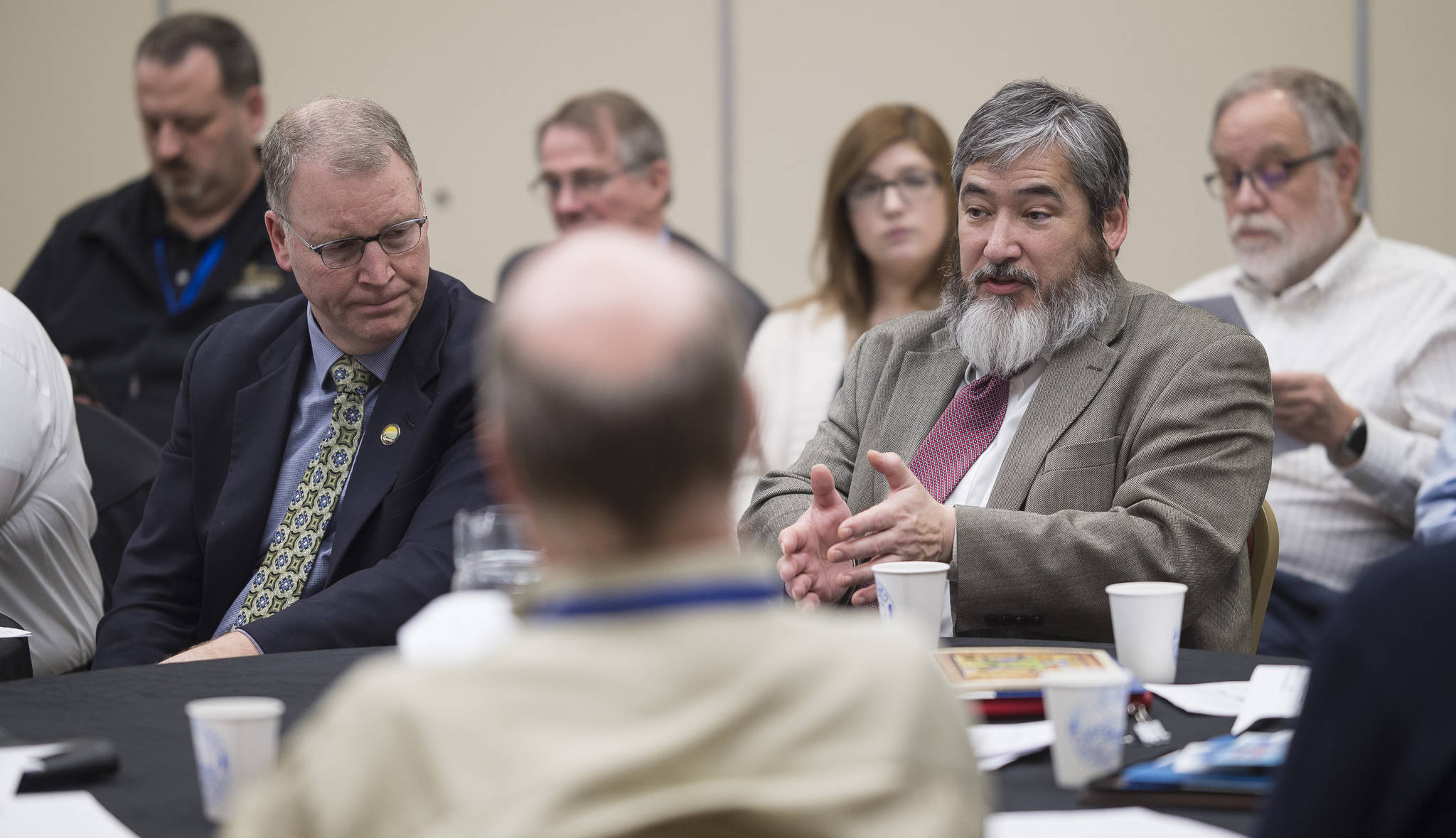The movement to reform the Alaska Marine Highway System is reaching a critical point as proponents meet with legislators this week.
The plan for reforming the ferry system, which has suffered from budget cuts in recent years, is to turn it into a public corporation instead of part of the Alaska Department of Transportation and Public Facilities. It’s based generally on the way the Alaska Railroad is run.
A key part of doing this would be to secure “forward funding” for the ferry system, meaning that the AMHS could plan its budgets 18-24 months ahead of time instead of trying to set a schedule without knowing exactly what the budget will be.
During a breakout session at the Southeast Conference’s Mid-Session Summit on Wednesday, the AMHS Reform Steering Committee met and looked at the next steps in its process.
Rep. Sam Kito III, D-Juneau, said in September that he would draft a bill to get increased funding for the ferry system. At Wednesday’s meeting, Kito gave an update on his progress. The bill should be ready “any day,” Kito said, adding that it sets the table for reforming the ferry system.
“We think we’ve got something that actually will create a very sustainable marine highway system,” Kito said. “It’s definitely going to be the starting point. The reason that we didn’t want to start pushing too far out is we didn’t want people wrapped around the axle on specific details that could be controversial.”
One of the items outlined in the bill is the appointment of a board comprised of members with “expertise” in the ferry system. They would have to have specific affiliations, such as the shipping industry or a background in large marine vessels. Susan Bell, principal at the McDowell Group, said this board is a vital part of the possible future of the corporation. It will require more thought, she said, to determine how exactly to organize the board.
While the ferry system isn’t expected to break down, Elliott Bay Design Group (which has assisted in putting the reform plan together) Chief Concept Engineer John Waterhouse said the system is in a tough spot.
The M/V Malaspina is still being repaired, long after its expected return to service. That has stretched a thin system even thinner, Waterhouse said.
“It’s not as though it’s just going to vanish,” Waterhouse said of the AMHS. “The system is under stress. Without corrective action, that stress will result in less confidence in the system. Less confidence in the system means less ridership, revenues will decline, and that’s going to put even more pressure on the funding side.”
Waterhouse said the founders of the marine highway put a system in place 50 years ago that has worked well for most of that time. Just like anything else, though, the approach needs to be tweaked as times change.
One of the main aims of Wednesday’s meeting was to develop a strategy for explaining the importance of the reform strategy to legislators. There were more than 30 people outside the steering committee present at the meeting, including the mayors of Angoon, Gustavus, Haines and Kake.
Bell has spoken multiple times over the past few months about the reform plan. She spoke again Wednesday morning to the full group of attendees at the summit. Bell’s overarching theme was urging people to communicate with their representatives, and that legislators won’t act unless they know that the AMHS is important not only for Southeast but for the whole state. The theme of this week’s summit was “Navigating the Southeast Economy,” and boating analogies were common during the talks.
“All the legislators need to hear that it’s important in their community and to their constituents,” Bell said. “We need all hands on deck.”
• Contact reporter Alex McCarthy at 523-2271 or alex.mccarthy@juneauempire.com. Follow him on Twitter at @akmccarthy.

